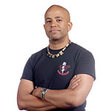Minister Faust's Blog, page 20
May 11, 2011
The Alchemists of Kush - Teaser Trailer A
On June 15, 2011, my long-awaited third novel, THE ALCHEMISTS OF KUSH , will be launched.
It's the story of two Sudanese "lost boys" fleeing war, oppression, violence and horrible alienation, each of whom finds a mentor to guide him towards manhood through the chaos of pain.
One lives in the streets of modern-day Kush, E-Town.
The other lived seven thousand years ago, known as Horus, son of Osiris.
======================================
You can buy the e-book instantly that day for only $2.99!
You don't need a Kindle or any other reader. You can get the free Kindle app for your computer.
Paperback is also available for only $18 from Amazon.com and your local independent bookstore.
======================================
WHY SHOULD YOU BUY THE BOOK ON JUNE 15?
TO MAKE ME DONATE $500!
If the book hits the Kindle Top 100 on launch day, I'll donate the $500 of sales to the South Sudan Development Foundation's efforts to ship thousands of books to the Dr. John Garang Memorial University in South Sudan, which currently has no library.
You will be able to pre-order the book in late May.
=======================================
ADVANCE PRAISE FOR THE ALCHEMISTS OF KUSH
"Minister Faust's first two books broke new ground in the SF field. His latest, The Alchemists of Kush, not only breaks new ground; with the story-telling skills of a modern griot, the Minister creates new vistas of history, mythology, erudition, uplift, tragedy, triumph, and contemporary community activism. Once you start the first page of this book, you won't be able to put it down until you've finished the last one."
Charles R. Saunders
Author of Imaro
"I loved the story, the mythology, and the characters. I found myself locked into it for hours at a time and couldn't put it down. Rich in detail ...A great book."
Kenneth T. Williams
Award-winning playwright of
Thunderstick and Three Little Birds
"A hell of a story. A hell of a book. A hell of a style. A frenetic novel and voice—very enjoyable. Minister Faust knows how to write about male relationships and brotherhoods, about getting into the hearts of men, and about boys turning into men.
"The Alchemists of Kush is a triumph, not just for Minister Faust, but for Edmonton and the community of Kush."
Wayne Arthurson
Award-winning author of
Final Season and Fall from Grace
"The Alchemists of Kush is both a powerful and vital contribution to Canadian literature that looks at contemporary Edmonton from an African-Canadian perspective. The characters in Minister Faust's novel reflect the true diversity of African-Canadians living in Edmonton. Hopefully this is the beginning of more great novels from people in Edmonton that look like us that tell stories about us."
Arlo Maverick
Politic Live
"The Alchemists of Kush is its own kind of alchemy. Composed of ancient past, gritty present, mythic fantasy, social activism, how Minister Faust blends it all is what gives the book its rare power. Reflecting the brilliance of his earlier novels, Minister Faust again strikes the perfect balance between eloquence and entertainment.
"Within the first twenty pages, I could (and did) imagine The Alchemists of Kush on the big screen. It's got that epic sweep to it. More importantly, I kept reading (and reading – and reading) because Minister Faust knows it's all about creating characters you'll love. I wept at the end."
Mark Kozub
Author of The Uptown Browns, A Calgary Album
Founding father of the Raving Poets
February 4, 2011
A Brave New Sudan... But Without Books?
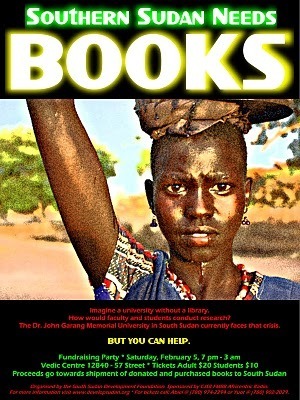 Imagine starting a country from scratch, a country devastated by war, poverty, PTSD, and crumbling or nonexistent modern infrastructure.
Imagine starting a country from scratch, a country devastated by war, poverty, PTSD, and crumbling or nonexistent modern infrastructure.Now imagine that your university--the centre for training your country's leaders--has no library. How do you rate your nation's chances for stability and prosperity?
Buk Arop is facing that conundrum right now, because his countrymen and –women in South Sudan have voted 99% in favour of separating from the North. And Arap knows as well as anybody that without education, his ancient (and also new) homeland has no future.
Arop, a tall, 29-year-old Sudanese youth worker with movie-star looks, a baritone voice and a gentle demeanour, is the president of the newly-formed South Sudan Development Foundation.
The SSDF's first major project is to stock—from scratch—the library of the Dr. John Garang Memorial University of Science and Technology , named in honour of the late leader of the Sudanese People's Liberation Army and Sudan's First Vice President. That means acquiring second-hand university-level books, and the cash to ship them, half-way around the world. It won't be cheap—which is why the SSDF is holding a fundraising dinner and dance at E-Town's Vedic Centre. Says Arop: "To ship a container costs approximately $10,000."
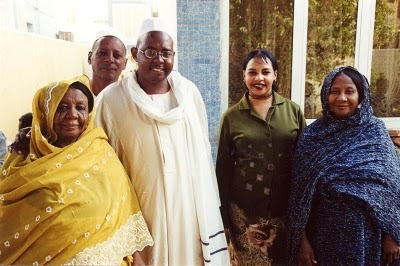 While many people characterise southern secession as the result of an "Arab vs. African" conflict, that racial characterisation is misleading. Physically, any Northern Sudanese walking the streets of Harlem—or Edmonton's Kush—would blend in easily, without anyone offering directions to the Saudi embassy. Instead, Sudan's north-south divide mirrors that of the Global North and South.
While many people characterise southern secession as the result of an "Arab vs. African" conflict, that racial characterisation is misleading. Physically, any Northern Sudanese walking the streets of Harlem—or Edmonton's Kush—would blend in easily, without anyone offering directions to the Saudi embassy. Instead, Sudan's north-south divide mirrors that of the Global North and South.
"If you Google Khartoum, the capital city, you will see skyscrapers; if you see parts of the city, you may think you're looking at some Western capitol," says Arop. "But on the flip side, if you Google [Southern capitol] Juba, it's just typical small-town Africa. It's not even close to any African capitol," despite a population of 1.1 million people.
Prior to impending secession, Sudan is currently the largest of Africa's fifty-four countries, and home to nineteen major ethnicities and 134 languages. To understand the urgency of building Garang U's library, compare Sudan with Canada. Canada's 34 million people have 90 universities and 175 colleges serving about 1.7 million students. Sudan's 40 million people (war has impeded an accurate census) have only 47 universities; Southern Sudan (the size of 1.3 Albertas) has as few as ten universities, serving a population of 11 million (about 3.3 Albertas).
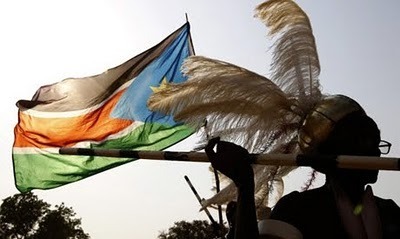 In 2008, the Government of Southern Sudan established Garang U in the town of Bor, but the campus is off to a hobbling start: so far it has only about 250 students, and doesn't even have a website. Starving for funds, GU has no student housing, so students live in tents. And a library book budget? Forget about it. It's a Catch-22 for economic development.
In 2008, the Government of Southern Sudan established Garang U in the town of Bor, but the campus is off to a hobbling start: so far it has only about 250 students, and doesn't even have a website. Starving for funds, GU has no student housing, so students live in tents. And a library book budget? Forget about it. It's a Catch-22 for economic development.
"The only employer seems to be the Government of Southern Sudan," says Arop, noting that local entrepreneurs and businesses are rare. "In Edmonton, if you want to start a business, you can lease a space. But in Juba, you have to start building a building from scratch." If the Southern Sudanese fail to generate their own economic titans, their national economic sovereignty will inevitably fall into the hands of foreign investors, including those of China.
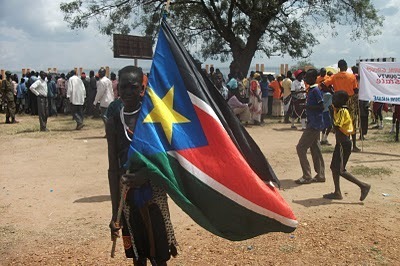 Arop emphasises that the SSDF will accept any university-level text, because GU's library, like any other, needs as wide an intellectual archive as possible. Donors worried about their texts being out of date can take comfort knowing that so is virtually every library text in the world. Nevertheless, the SSDF's book drive focus is on basic sciences, human and veterinary medicine, agriculture, engineering, construction, environmental studies, humanities, business, law, politics, conflict resolution and gender studies.
Arop emphasises that the SSDF will accept any university-level text, because GU's library, like any other, needs as wide an intellectual archive as possible. Donors worried about their texts being out of date can take comfort knowing that so is virtually every library text in the world. Nevertheless, the SSDF's book drive focus is on basic sciences, human and veterinary medicine, agriculture, engineering, construction, environmental studies, humanities, business, law, politics, conflict resolution and gender studies.
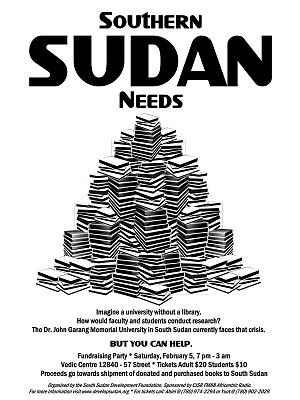 The South Sudan book drive is international, originating from a South Sudanese professor in Holland. Arop is impressed by the Edmontonian response, led in part by Political Scientist Chaldeans Mensah at MacEwan University.
The South Sudan book drive is international, originating from a South Sudanese professor in Holland. Arop is impressed by the Edmontonian response, led in part by Political Scientist Chaldeans Mensah at MacEwan University.
"MacEwan University answered the call," says Arop. "They were involved very quickly [last semester]. I understand that the space that was provided there started to overflow, and the book drive is still going on."
South Sudan finds its microcosm in Edmonton, which hosts a range of Sudanese ethnicities, including Dinka and Nuer. Arop says local Sudanese may rival the Somalis in numbers—perhaps as many as 15,000—but admits nobody has hard numbers.
While most Sudanese-Canadians have more opportunities here than back home, many face familial and cultural dislocation, post-traumatic stress, under-employment and poverty, high debt from relocation, and savings drained immediately by sending remittances to relatives.
Neverthless, Arop remains optimistic for Sudanese at home and abroad: "Those who will take chances on [the Southern Sudanese people] are definitely going to go down in history as heroes, and will recognised for that."
==========
Books for Sudan Dinner and Dance
$20/$10 Student
Vedic Centre
12840 - 57 street
Saturday, Feb. 5, 7 pm – 3 am
www.developsudan.org
Tickets: 780-974-2294
October 8, 2010
Africentric videos for KLA students
If you don't have time to watch everything, watch one video from each category.
ECONOMICS
Who are Africa's billionaires?
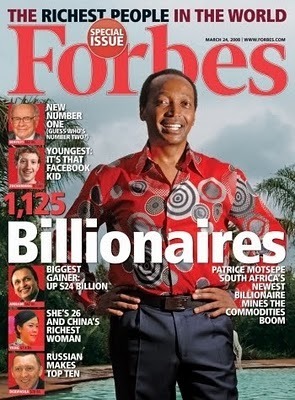
Nigerian billionaire Aliko Dangote, the world's wealthiest African
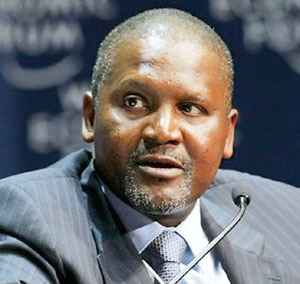
Former Nigerian Finance Minister Ngozi Okonjo-Iweala: Want to help Africa? Do business here
Euvin Naidoo on Investing in Africa
EDUCATION
Ghanaian Educator Fred Swaniker and the African Leadership Academy
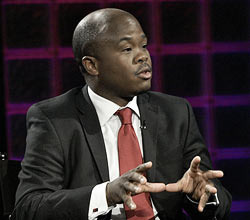
The South Africa-based AIMS (African Institute for Mathematical Sciences)
Ghanaian Educator Patrick Awuah: Educating a new generation of African Leaders
CIVILISATIONS
The Lost Libraries of Timbuktu
(Watch parts 2- 6, if you have time: 2 - 6; double-click on the video file above and search for the title and part # in the video host)
Basil Davidson on the Origin of Egyptian Civilisation
(Watch the parts 1 + 3, if you have time; double-click on the video file above and search for the title and part # in the video host)
Timbuktu Scribes
(Watch part 2 if you have time; double-click on the video file above and search for the title and part # in the video host)
THE ARTS
Kenyan Artist Wangechi Mutu - This You Call Civilisation
Nigerian Author Chimamanda Adichie: The Danger of a Single Story
Kenyan Animation Studio
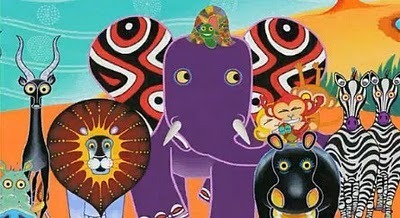
Nigerian Sculptor El Anatsui - "Heaven and Earth"
El Anatsui installing "Between Earth and Heaven" or see more Metropolitan Museum Videos
SCIENCE, INVENTION + ENGINEERING
Guyanese historian, linguist and anthropologist Ivan Van Sertima on Africans in Science
African American Entrepreneur and Technologist Nii Simonds, Co-Founder of Afrobotics
Afrobotics Homepage
African American Lonnie Johnson, Inventor of the Super-Soaker
Malawian engineering prodigy William Kamkwamba
Ghanaian Computing Engineer and Brain-Computer Researcher
September 1, 2010
TONIGHT ON THE TERRORDOME: Mohammed Ibrahim on Good Governance as the Engine of African Development
FM 88.5 Edmonton
cjsr.com worldwide
Download or stream
When Sudanese engineer and entrepreneur Mohamed Ibrahim built a cellular communication network across the African continent, he likely had no idea he'd meet such massive financial, social and political success.
Ibrahim eventually sold his CelTel company for $3.4 billion, and used his money to establish the Mo Ibrahim Foundation. The Foundation's major goal is to improve governance across the African continent, since without...
August 4, 2010
TONIGHT ON THE TERRORDOME: Molefi Kete Asante - Du Bois, Africa and the Convergence of Consciousness
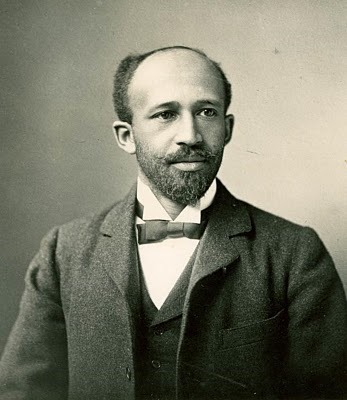 6 pm Mountain Time
6 pm Mountain TimeFM 88.5 Edmonton
cjsr.com worldwide
Download or stream
Few American scholars achieved the depth and breadth of accomplishment of Dr. W.E.B. Du Bois.
Born in 1868, three years after the end of the American civil war, Du Bois was the first African to receive a PhD from Harvard University.
Du Bois also studied at the University of Berlin, becoming a professor of History and Economics, and wrote 36 books and more than 4000 articles and essays. For a time he headed the National...
June 11, 2010
Africa Day 2010
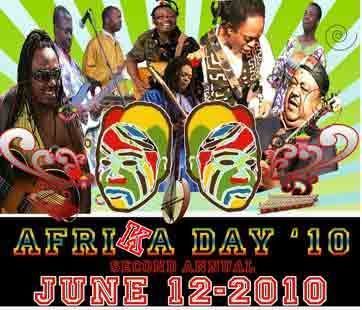 This Saturday, June 12, Edmonton hosts the Africa Day Festival! The Africa Day Festival features a bounty of African cultures in Canada with musics, art, words of inspiration, community members and leaders, and a dazzling array of international cuisines.
This Saturday, June 12, Edmonton hosts the Africa Day Festival! The Africa Day Festival features a bounty of African cultures in Canada with musics, art, words of inspiration, community members and leaders, and a dazzling array of international cuisines.The event begins with a family-friendly indoor-outdoor community celebration at the Africa Centre on 131st Avenue and 127th Street, featuring drummers, dancers, musicians and children's activities.
The festival peaks with a dinner gala...
May 10, 2010
May 2, 2010
3 Day Novel Contest, Season 1, Episode 3
Part One of Three
Part Two of Three
Part Three of Three
April 30, 2010
April 22, 2010
3 Day Novel Contest, Season 1, Episode 2
Part One of Three
Part Two of Three
Part Three of Three

